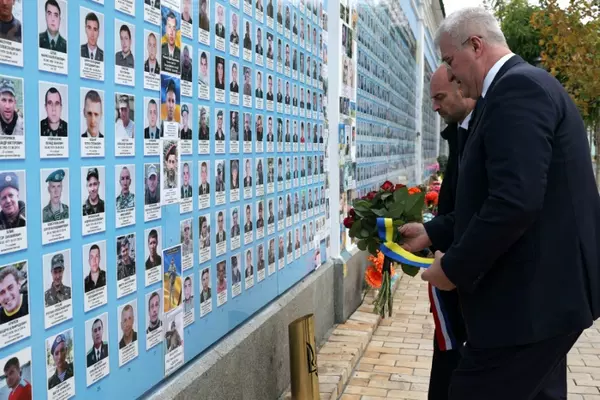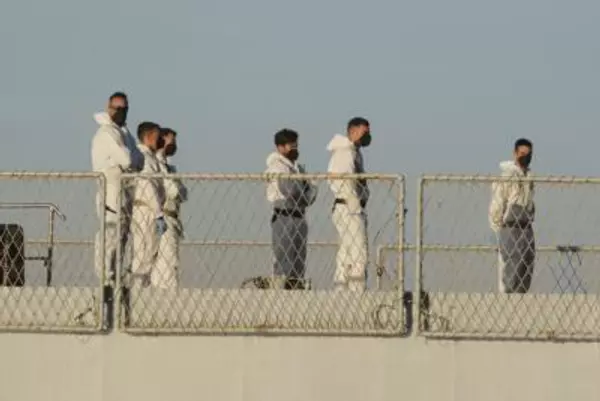
The message from COP27 in Sharm El Sheikh is clear: The world must accelerate the transition to cleaner energy. It is the shortest path to Net Zero. To get there, we need to pick up the pace in creating global collaborations that deliver both economic and climate progress through pragmatic, realistic, practical, and commercially viable initiatives.
Announced in the lead-up to COP27, one of the largest and most ambitious collaborations of this kind is the new UAE-U.S. Partnership for Accelerating Clean Energy (PACE). Its goal is to catalyze $100 billion in financing and investment to deploy 100 new gigawatts (GW) of clean energy in the U.S., UAE, and emerging economies by 2035.
The PACE initiative addresses the reality that if the basic energy needs of billions of people are not met, economies will slow down significantly, impacting the resources made available for climate action. By focusing on pragmatic progress to drive the energy transition, we can create new industries, new skills, and new jobs.
That's why the initiative steps up investment in mitigation technologies across the current energy supply chain to ensure the lowest carbon and methane intensity for the hydrocarbons that the world still relies on. In parallel, it directs significant public and private sector funding toward new clean technologies and their supply chains in the UAE, the U.S., and a number of emerging economies around the world. This is critical to redressing the imbalance between mature economies and the Global South when it comes to the commercial deployment of clean energy solutions at scale.
PACE also focuses on the nuclear sector, particularly innovation in small modular reactors that can be deployed more rapidly than capital-intensive grid-scale reactors. In addition, PACE will direct significant resources toward industrial decarbonization by scaling up proven technologies such as carbon capture and storage, while investing in new energies such as hydrogen and other fuels that can help power the hardest-to-abate heavy industries.
The PACE initiative is a good start, but we cannot underestimate the size of the challenge ahead. The world needs an estimated $50 to 60 trillion over the next 30 years to decarbonize industrial and energy systems by 2050. No single nation or economic bloc can achieve this scale alone–and it will require new models of government and private sector funding.
As one of the world’s largest investors in and operators of renewable energy projects, the UAE has been accelerating clean energy solutions through international public-private partnerships for over two decades. We have invested over $50 billion in 70 countries, from developed economies to small island nations, from utility-sized mega projects to bespoke, site-specific solutions. Whatever the size and wherever the place, these projects all are designed to reduce carbon impacts and to be economically self-sustaining.
At the same time, we are building on our position as a reliable and responsible supplier of some of the least carbon-intensive oil and gas in the world by applying proven and new technologies. We were the first hydrocarbon producers in the region to adopt carbon capture and storage on an industrial scale–and the first to use nuclear and solar energy to supply 100% of our national oil company’s electricity needs. Our ethos is “maximum energy, minimum emissions.”
We believe that partnering on climate action is an opportunity to tackle the broader issues of peace and economic development.
At COP27, we signed an agreement to implement Project Prosperity between the UAE, Jordan, and Israel. This begins the execution phase of an initiative to provide solar power to Israel in exchange for desalinated water for Jordan. The UAE’s Masdar is the technical partner and the United States provided valuable diplomatic support in a deal that enhances regional stability, energy security, low carbon growth, and peaceful coexistence at a time when the world needs all of the above.
We announced a new partnership between the UAE and Egypt to deliver one of the world’s biggest onshore wind farms. It will displace an estimated 9% of Egypt’s overall CO2 emissions and save the country $5 billion in annual natural gas costs.
As the UAE looks toward hosting COP28, the Emirates Climate Conference in 2023, we will continue to expand effective partnerships between countries, between industries, and between the public and private sectors to reduce carbon and advance economic progress.
We are committed to delivering an inclusive and solutions-oriented summit that accelerates climate finance, enhances access to clean technologies across vulnerable communities, and leverages the talent of all sectors of society, including women and young people. As we do so, we will work with the world in pursuit of an actionable pathway to Net Zero by 2050.
Sultan Al Jaber, Ph.D., is the UAE’s minister for industry and advanced technology, special envoy for climate, chairman of Masdar, and group CEO of the Abu Dhabi National Oil Company (ADNOC).
The opinions expressed in Fortune.com commentary pieces are solely the views of their authors and do not necessarily reflect the opinions and beliefs of Fortune.
More must-read commentary published by Fortune:
- Elon Musk knows what he’s doing. Here’s the real value he sees in Twitter
- California Gov. Newsom: ‘Ideological attacks on ESG investing defy the free market—and taxpayers are losing out. Here’s why we consistently beat Republican-led states in nearly every economic category’
- I got rich by betting that inequality would destroy the U.S. and U.K. I’m sorry
- The last American venture capitalist in Beijing: Here are the strategic miscalculations undermining America’s technology competition with China







